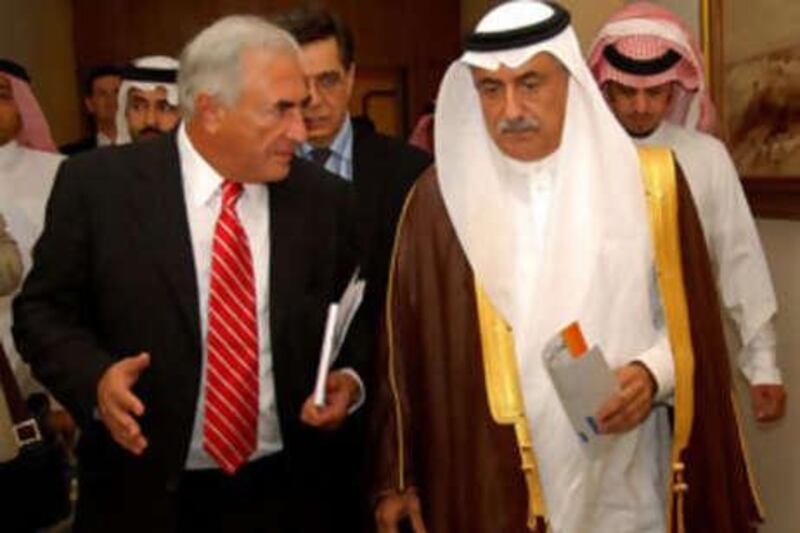GCC economic representatives agreed on the general structure of a monetary union earlier today, during the conclusion of three days of discussions in Jeddah, Saudi Arabia. The officials made no decision, however, on where the GCC's central bank would be located, choosing instead to defer the decision to their heads of state who will meet in Muscat in November. At the close of yesterday's session, some expressed hope that central bank governors and finance ministers would decide on a location for the Gulf monetary council, which will serve as the core of any permanent Gulf central bank. Market turmoil in the West seemed to force the hands of economic leaders in Jeddah this week, as fears of a looming global economic slump prompted officials to accelerate their plans for a GCC monetary union. "We are beginning to see that if we don't agree on these issues, future storms may be more difficult to deal with," Youssef Kamal, Qatar's minister of finance and economy, said at the meeting. Without a common stock market and a single currency, the region may find it difficult to face regional economic troubles, he said. tpantin@thenational.ae
GCC agrees on monetary union framework
Market turmoil in the West and fears of a global slump are forcing the hands of Gulf leaders this week.

Editor's picks
More from the national




